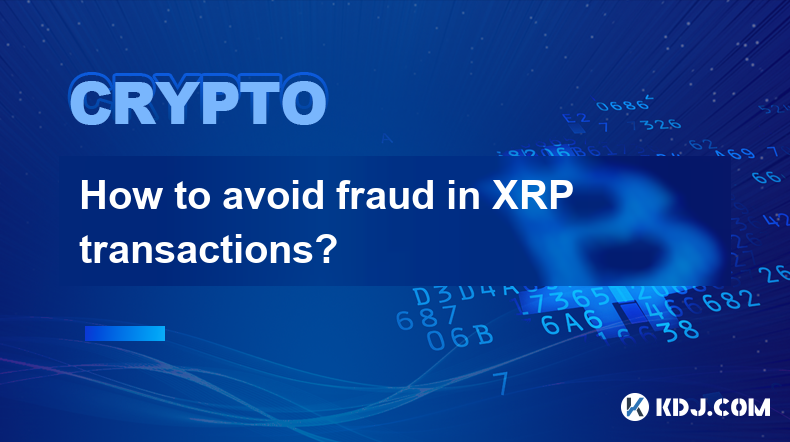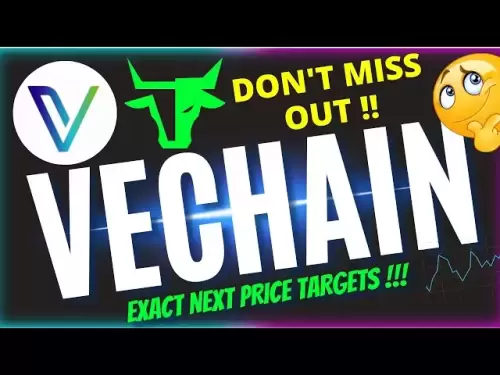-
 Bitcoin
Bitcoin $111,259.5910
2.32% -
 Ethereum
Ethereum $2,789.1977
6.17% -
 Tether USDt
Tether USDt $1.0006
0.06% -
 XRP
XRP $2.4172
3.88% -
 BNB
BNB $671.6585
1.21% -
 Solana
Solana $157.1336
2.90% -
 USDC
USDC $1.0001
0.02% -
 TRON
TRON $0.2913
1.52% -
 Dogecoin
Dogecoin $0.1809
5.04% -
 Cardano
Cardano $0.6213
4.40% -
 Hyperliquid
Hyperliquid $41.7572
6.29% -
 Sui
Sui $3.1623
8.35% -
 Bitcoin Cash
Bitcoin Cash $513.7819
1.17% -
 Chainlink
Chainlink $14.2966
1.64% -
 Stellar
Stellar $0.2904
9.82% -
 UNUS SED LEO
UNUS SED LEO $8.9624
-0.86% -
 Avalanche
Avalanche $19.4161
5.41% -
 Hedera
Hedera $0.1754
8.17% -
 Shiba Inu
Shiba Inu $0.0...01243
4.58% -
 Toncoin
Toncoin $2.8743
2.25% -
 Litecoin
Litecoin $90.6242
3.12% -
 Monero
Monero $328.7483
3.34% -
 Polkadot
Polkadot $3.6433
5.06% -
 Dai
Dai $1.0002
0.02% -
 Ethena USDe
Ethena USDe $1.0011
0.06% -
 Uniswap
Uniswap $8.3418
8.66% -
 Bitget Token
Bitget Token $4.4331
2.68% -
 Pepe
Pepe $0.0...01102
8.17% -
 Aave
Aave $297.1705
-0.69% -
 Pi
Pi $0.4712
1.31%
How to avoid fraud in XRP transactions?
To safely navigate XRP transactions, protect your private keys, verify platform authenticity, and stay informed about common frauds like phishing and fake exchanges.
Apr 21, 2025 at 07:56 am

How to Avoid Fraud in XRP Transactions?
XRP, the native cryptocurrency of the Ripple network, has gained significant popularity due to its fast transaction speeds and low fees. However, like any digital currency, XRP transactions are susceptible to fraud. Understanding the common types of fraud and learning how to protect yourself is crucial for safely navigating the world of XRP transactions. This article will guide you through the various fraud risks associated with XRP and provide practical steps to avoid falling victim to these scams.
Understanding Common Types of Fraud in XRP Transactions
Fraud in XRP transactions can take various forms, each with its own set of risks and red flags. Phishing scams are one of the most prevalent types of fraud, where attackers impersonate legitimate entities to trick users into revealing their private keys or other sensitive information. Fake exchanges and Ponzi schemes are also common, where fraudsters create fake platforms or promise unrealistic returns to lure investors.
Another type of fraud to be aware of is address poisoning, where attackers send a small amount of XRP to an address that looks similar to your own, hoping you'll accidentally send funds to this wrong address in the future. Smart contract vulnerabilities in decentralized applications (dApps) that use XRP can also lead to unauthorized access to your funds.
Protecting Your Private Keys
The foundation of securing your XRP transactions lies in protecting your private keys. These keys are essential for authorizing transactions and accessing your funds. Never share your private keys with anyone, and be cautious of any request to do so. Store your private keys in a secure location, such as a hardware wallet or a cold storage solution, rather than keeping them on an internet-connected device.
If you use a software wallet, ensure that it is from a reputable source and keep it updated to the latest version to protect against known vulnerabilities. Enable two-factor authentication (2FA) wherever possible to add an extra layer of security to your accounts.
Verifying the Authenticity of XRP Platforms
Before engaging with any platform that handles XRP transactions, verify its authenticity. Use reputable sources to check the legitimacy of exchanges and wallets. Look for user reviews, regulatory compliance, and official announcements from the platform. Beware of platforms that promise unusually high returns or have a poor reputation.
When using an exchange, ensure that it is regulated and has a strong track record of security. Check if the exchange has undergone third-party audits and if it offers insurance for user funds. Always access the platform directly through its official website rather than through links provided in emails or social media messages, which could be part of a phishing attack.
Safe Transaction Practices
To minimize the risk of fraud in your XRP transactions, follow safe transaction practices. Always double-check the recipient's address before sending any funds. Use the 'destination tag' feature when sending XRP to an exchange or other multi-user wallet to ensure your funds reach the correct account.
When initiating a transaction, start with a small test amount to confirm that everything works as expected before sending larger sums. Monitor your transactions closely and set up alerts for any unusual activity on your accounts. If you notice any suspicious transactions, report them immediately to the platform's support team.
Educating Yourself on XRP Scams
Staying informed about the latest XRP scams and fraud techniques is essential for protecting yourself. Regularly follow reputable cryptocurrency news sources and join XRP-focused communities where members share information about ongoing scams. Be skeptical of unsolicited offers and do your own research before investing in any XRP-related opportunity.
Participate in educational webinars and workshops that focus on cryptocurrency security. Understand the basics of blockchain technology and how XRP transactions work to better recognize potential fraud attempts. Remember, if an offer sounds too good to be true, it probably is.
Using Trusted Resources and Tools
Leverage trusted resources and tools to enhance your security when dealing with XRP transactions. Use reputable cryptocurrency analysis tools to monitor the market and track your transactions. Blockchain explorers can help you verify the status of your transactions and check the history of addresses you're dealing with.
Consider using transaction monitoring services that can alert you to any unusual activity on your accounts. Anti-phishing tools can help you identify and avoid malicious websites. Regularly back up your wallet data and store these backups in secure, offline locations to protect against data loss or theft.
Frequently Asked Questions
Q: Can I recover my XRP if I accidentally send it to the wrong address?
A: Unfortunately, XRP transactions are irreversible once they are confirmed on the blockchain. If you send XRP to the wrong address, it is very difficult to recover the funds. Always double-check the recipient's address and use the destination tag feature when sending XRP to an exchange or multi-user wallet.
Q: How can I tell if an XRP exchange is legitimate?
A: To determine if an XRP exchange is legitimate, look for regulatory compliance, user reviews, and official announcements. Check if the exchange has undergone third-party audits and offers insurance for user funds. Always access the platform directly through its official website to avoid phishing attacks.
Q: What should I do if I suspect my XRP wallet has been compromised?
A: If you suspect your XRP wallet has been compromised, immediately transfer your funds to a new, secure wallet. Change all related passwords and enable two-factor authentication if you haven't already. Report the incident to the wallet provider and consider using a hardware wallet for enhanced security in the future.
Q: Are there any specific XRP scams I should be aware of?
A: Yes, some specific XRP scams to be aware of include phishing scams where attackers impersonate legitimate entities, fake exchanges promising high returns, Ponzi schemes, and address poisoning where attackers send small amounts of XRP to addresses that look similar to your own. Always stay informed about the latest scams and use trusted resources to verify the authenticity of platforms and transactions.
Disclaimer:info@kdj.com
The information provided is not trading advice. kdj.com does not assume any responsibility for any investments made based on the information provided in this article. Cryptocurrencies are highly volatile and it is highly recommended that you invest with caution after thorough research!
If you believe that the content used on this website infringes your copyright, please contact us immediately (info@kdj.com) and we will delete it promptly.
- XRP Ledger's EVM Sidechain: TVL Surge, Institutional Adoption, and the Future of RLUSD
- 2025-07-10 20:30:12
- BLOS Token, Blossom Fund, and Your Stock Portfolio: A New Era of Investing
- 2025-07-10 20:50:12
- Aptos, Wyoming Stablecoin, and Technical Analysis: Bullish Signals Ahead?
- 2025-07-10 21:10:12
- Uzbekistan's Tokenized Government Bonds: A New Frontier in Finance
- 2025-07-10 21:10:12
- Hedera (HBAR), SEI, BlockDAG: Decoding the Crypto Landscape of 2025
- 2025-07-10 21:15:12
- Justin Sun, TRX, and Dual-Profit: Decoding the Latest Crypto Moves
- 2025-07-10 21:15:12
Related knowledge

How to customize USDT TRC20 mining fees? Flexible adjustment tutorial
Jun 13,2025 at 01:42am
Understanding USDT TRC20 Mining FeesMining fees on the TRON (TRC20) network are essential for processing transactions. Unlike Bitcoin or Ethereum, whe...

USDT TRC20 transaction is stuck? Solution summary
Jun 14,2025 at 11:15pm
Understanding USDT TRC20 TransactionsWhen users mention that a USDT TRC20 transaction is stuck, they typically refer to a situation where the transfer...

How to cancel USDT TRC20 unconfirmed transactions? Operation guide
Jun 13,2025 at 11:01pm
Understanding USDT TRC20 Unconfirmed TransactionsWhen dealing with USDT TRC20 transactions, it’s crucial to understand what an unconfirmed transaction...

How to check USDT TRC20 balance? Introduction to multiple query methods
Jun 21,2025 at 02:42am
Understanding USDT TRC20 and Its ImportanceUSDT (Tether) is one of the most widely used stablecoins in the cryptocurrency market. It exists on multipl...

What to do if USDT TRC20 transfers are congested? Speed up trading skills
Jun 13,2025 at 09:56am
Understanding USDT TRC20 Transfer CongestionWhen transferring USDT TRC20, users may occasionally experience delays or congestion. This typically occur...

The relationship between USDT TRC20 and TRON chain: technical background analysis
Jun 12,2025 at 01:28pm
What is USDT TRC20?USDT TRC20 refers to the Tether (USDT) token issued on the TRON blockchain using the TRC-20 standard. Unlike the more commonly know...

How to customize USDT TRC20 mining fees? Flexible adjustment tutorial
Jun 13,2025 at 01:42am
Understanding USDT TRC20 Mining FeesMining fees on the TRON (TRC20) network are essential for processing transactions. Unlike Bitcoin or Ethereum, whe...

USDT TRC20 transaction is stuck? Solution summary
Jun 14,2025 at 11:15pm
Understanding USDT TRC20 TransactionsWhen users mention that a USDT TRC20 transaction is stuck, they typically refer to a situation where the transfer...

How to cancel USDT TRC20 unconfirmed transactions? Operation guide
Jun 13,2025 at 11:01pm
Understanding USDT TRC20 Unconfirmed TransactionsWhen dealing with USDT TRC20 transactions, it’s crucial to understand what an unconfirmed transaction...

How to check USDT TRC20 balance? Introduction to multiple query methods
Jun 21,2025 at 02:42am
Understanding USDT TRC20 and Its ImportanceUSDT (Tether) is one of the most widely used stablecoins in the cryptocurrency market. It exists on multipl...

What to do if USDT TRC20 transfers are congested? Speed up trading skills
Jun 13,2025 at 09:56am
Understanding USDT TRC20 Transfer CongestionWhen transferring USDT TRC20, users may occasionally experience delays or congestion. This typically occur...

The relationship between USDT TRC20 and TRON chain: technical background analysis
Jun 12,2025 at 01:28pm
What is USDT TRC20?USDT TRC20 refers to the Tether (USDT) token issued on the TRON blockchain using the TRC-20 standard. Unlike the more commonly know...
See all articles


























![Bitcoin is about to plummet and get 9-7W long-term short orders [Chainblade’s latest market BTC technical analysis] July 10, 2025 Bitcoin is about to plummet and get 9-7W long-term short orders [Chainblade’s latest market BTC technical analysis] July 10, 2025](/uploads/2025/07/10/cryptocurrencies-news/videos/bitcoin-plummet-w-term-short-chainblade-market-btc-technical-analysis-july/686f8f4c58e52_image_120_90.webp)






























































